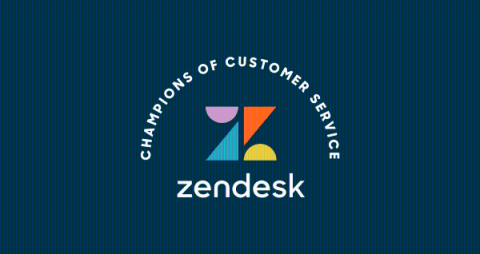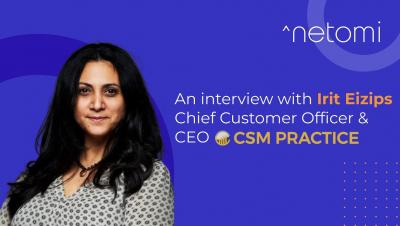Teams | Collaboration | Customer Service | Project Management
August 2022
Dashboards vs. Reports in InvGate Service Desk
What a 360-degree View of a Customer Looks Like
Rome wasn’t built in a day – and it didn’t fall in one either. Come the 4th and 5th centuries, the leaders neglected the needs of their various peoples, and oftentimes, as in the case of Majorian, they seemed outright surprised at the unpopularity of some measures. Could Majorian have used a 360-degree view of his Roman subjects (read: customers)?
Is Conversational Ticketing Right for Your Business?
For support teams and CX leaders today, conversational ticketing may be the way forward, and an excellent method for streamlining the support process. Why, you may ask?
Is Conversational Ticketing Right for Your Business?
For support teams and CX leaders today, conversational ticketing may be the way forward, and an excellent method for streamlining the support process. Why, you may ask?
Four Key Steps to Make the Most of Your Knowledge Base
8 Best Customer Service Companies in 2022 (Tips included)
According to Freshdesk’s Future of CX report, the pandemic has forced consumers to adapt to digital channels. While the consumers of 2022 prefer digital-first experiences, they expect service providers to keep up with quality customer service across channels. As companies revisit their customer service strategy, they can take a leaf out of companies that get customer service right.
Introducing the Hub SDK Improvement for Messaging and Live Chat
Living in the Digital Age, so much of our lives are saturated with data and information. But with so much information available, sometimes we can feel like Johnny Mnemonic, past cranial-storage capacity, where additional data doesn’t help us solve any problems, and instead makes it even more difficult to solve problems.
The Rise of the Machine Customer: The Next Emerging Market for CX
Staying abreast of all things CX is something we take seriously at Netomi, and the rise of the machine customer is a phenomenon that is shaping the future. This sounds futuristic, bringing to mind images of assembly lines and TV shows such as Westworld. To clarify, the customers themselves are not machines, rather, machine customers, such as virtual personal assistants or smart products, will perform customer service activities on behalf of their human customers for lower customer effort.
Streamline Your Ticket Management With Leading Industry Best Practices
Ticket management is key to speeding up customer service and improving its quality. Time saved on routing and responding to helpdesk tickets can be invested in offering more personalized, in-depth assistance once an associate contacts a client. This is why efficient ticket management isn’t just about speed but also quality.
Christmas gift shopping behaviour has changed - Now is the time for retailers to adapt
With inflation on the rise and an uncertain economic environment ahead, customers are rethinking their purchases. By focusing on what really matters to customers, retailers can offer an affordable yet memorable Christmas shopping experience this season.
Irit Eizips on Customer Success | Measuring Success, Important CS Skills, Career Advice
3 Components of the Customer Experience You Should Know
The concept of customer experience has become one of the main focuses of customer-facing teams, and for good reason. The customer experience is at the forefront of everything a company does for its customers, whether it's the products and services they provide or the simple, everyday interactions between them. Concepts like customer-centricity and being customer-first are now at the forefront of a pioneering spirit in customer support and related fields, yet many companies are still falling behind.
Why FinTechs need to deliver superior digital customer service right now
As the world turned digital, the FinTech industry was ready to ride the wave. But now the market is showing signs of slowing. FinTechs that are not growing their user base are at risk of being acquired. And because there are now so many players in the digital space, there’s fierce competition to keep and acquire new customers. And therein lies the key to success: customers. More and more, the distinction between a stellar FinTech and a struggling one is the quality of its customer experience.
The Cost of B2B Customer Churn and How to Reduce It
For B2B sellers, one-off sales aren’t enough to grow a consistent book of business. While closing an initial sale is excellent on its own, utilizing that sale as an opportunity to convert one-time buyers into long-term, loyal clients are the key to a thriving B2B business. As a result, B2B customer churn is something every business owner should consider reducing.
Do User Experience Surveys Work? Demystifying User Research
How Providing Value Along the B2B Customer Journey Impacts Customer Loyalty and Success
At its core, any B2B business’s goal is to provide value to its clients. Fortunately, the product or service being sold isn’t the only way for a company to demonstrate or provide value. There are countless opportunities for B2B sellers to act less like a supplier, and more like a partner before, during, and after the sale. That is why we will review the B2B customer journey and how businesses can optimize using proven frameworks and analytics from their operations.
AI for CX 101: Conversational AI Metrics that Matter
Metrics are critical in order to gauge the performance of both support teams and the technology solutions behind them in any project. In our customer case studies, we frequently talk about milestones such as our customers reaching deflection rates of X%, yet what do these terms really mean? As you progress with your conversational AI journey, which key customer experience metrics can you see improve with AI?
Customer dashboards: Examples of Customer Service Dashboards and Steps to Create One
One of the primary responsibilities of a customer support manager is to monitor your team’s performance and help them deliver outstanding customer service efficiently. A customer service dashboard is the perfect tool for you to track your support team’s efficiency and also know how happy your customers are with the support you offer.
Implementing B2B Customer Service Best Practices: The Power in Planning
Customer service is paramount in growing a modern business, especially in B2B markets. Business owners and professional buyers value companies they can build long-lasting, satisfying business relationships with. To prove that this is possible, the firm they’re partnering with needs to put emphasis on planning out the customer journey. As far as B2B customer service best practices go, planning is arguably the most important.
All About Experience Level Agreements (Are They Here to Replace SLAs?)
Why Delivering A Superior Customer Experience Matters in B2B
When it comes to adopting new philosophies, practices, and technologies, businesses tend to give disproportionate focus on the sales process. While the sales process is a vital aspect of increasing revenues through initial conversion, around 60% of buyers say that they would switch to a new brand in a given industry after one bad customer service experience. This figure only begins to demonstrate the overwhelming importance of offering a personalized, efficient customer service system.
How To Leverage Software to Improve Customer Service Efficiency
In the modern world of B2B, all organizations now have to be hyper-focused on service. And not just within the customer service teams, but right across the entire fabric of the organization. Good customer service across the board is an organization’s key to customer retention and expansion.
What Does Customer-Centricity Even Mean?
Like people, a lot of businesses like to think that by saying that they have certain traits, then they automatically have those certain traits. Take being customer-centric, for example. Just because a business declares that they are customer-centric and therefore always put their customers first, does that make it true? Not so much, no.

















